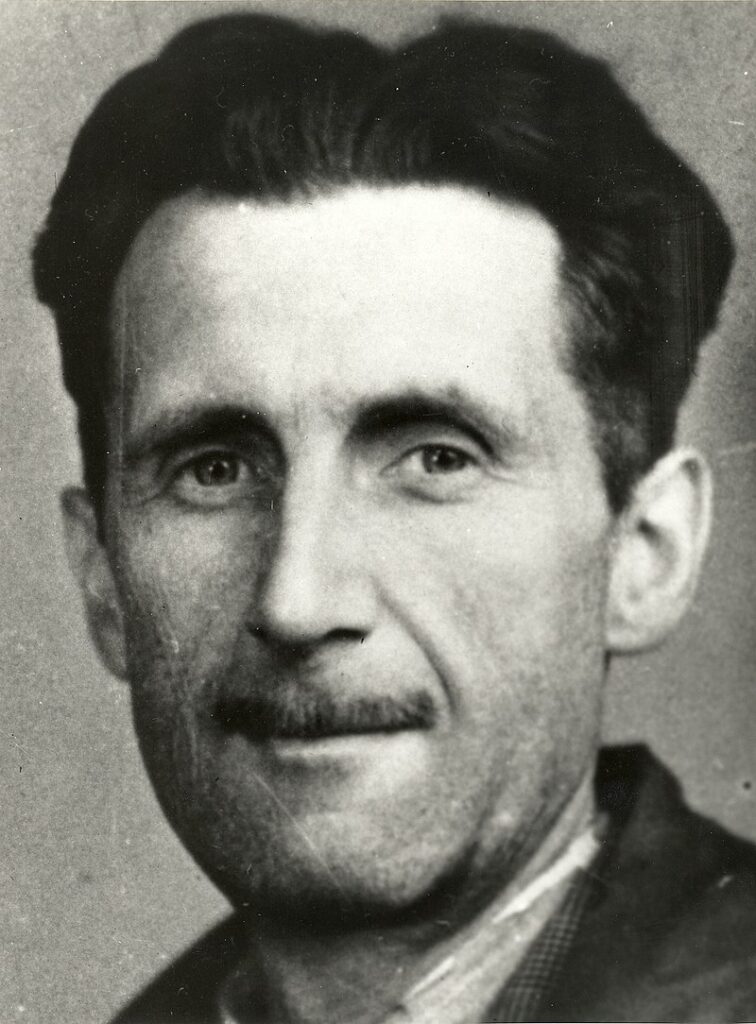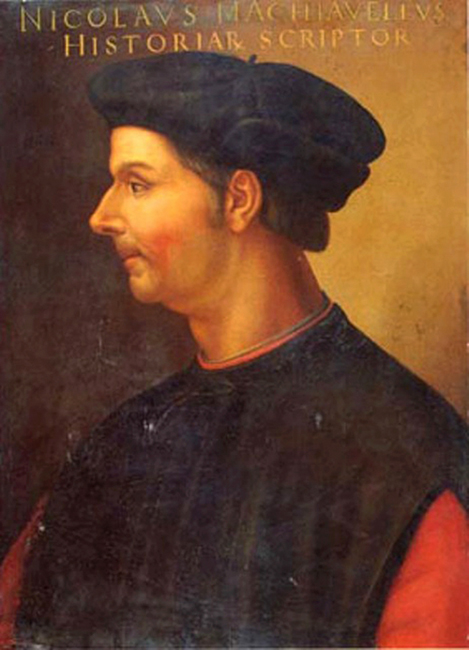The best persuasive writers are Virginia Woolf, Machiavelli, Martin Luther King, the Evangelists, and George Orwell. These writers are influential and popular, setting the intellectual world alight with their teachings. There is so much to be gleaned about the nature of persuasive writing in these texts.
George Orwell

Orwell wrote wonderful novels with which many of us are familiar: the fabulist tale Animal Farm and the Dystopian Sci-Fi 1984 in particular. Both of these contain complex and satisfying allegorical intellectual arguments about the dangers of totalitarianism, and the hypocrisy and exploitation inherent therein.
Orwell is also a celebrated essayist and journalist, often arguing strongly for certain positions (polemical writing). He is a noted writer on all things British, from the worst excesses of empire, to the quotidian habits and preoccupations of the British people at home.
His longer nonfiction works captivated audiences partially because of the lengths Orwell went to to gather research. Homage to Catalonia (1938) details his experiences in the Spanish Civil war and The Road to Wigan Pier records his thoughts on the working class experience in northern England.
Orwell’s influence extends beyond the subject matter of his writings, to reflections on the very nature of writing itself. His rules for writing are still widely revered (including by this author).
1. Never use a metaphor, simile, or other figure of speech which you are used to seeing in print.
– Orwell
2. Never use a long word where a short one will do.
3. If it is possible to cut a word out, always cut it out.
4. Never use the passive where you can use the active.
5. Never use a foreign phrase, a scientific word, or a jargon word if you can think of an everyday English equivalent.
6. Break any of these rules sooner than say anything outright barbarous.
Few writers throughout history have been simultaneously as popular and profoundly influential as George Orwell. He is undoubtedly one of the most persuasive writers of all time, still regularly referenced in multiple spheres including politics.
Machiavelli

Niccolò di Bernardo dei Machiavelli (3 May 1469 – 21 June 1527) was an Italian historian, philosopher, diplomat, and political adviser. He is most famous for his publication entitled The Prince. It was so influential that he has been referred to as the father of modern political philosophy.
Reader beware: many contemporary scholars believe that Machiavelli was a teacher of evil, and that his most famous text offers a handbook for tyrants to oppress those they rule over.
His defenders frame him rather as a teacher of realpolitik, a body of thought which deals with the gap between idealistic notions of rulership and the harsh realities of exercising and maintaining power both at home and abroad.
One thing is for certain, this text shocks with its candor. Rulers try to obfuscate the nastier elements of their rule, preferring to highlight their benevolence. Machiavelli brings the reader’s attention back to the regrettable.
Martin Luther King

A global household name, Martin Luther King was a Nobel Peace Prize winning Baptist minister and philosopher who championed non-violent resistance to racist oppression in the United States.
Unfortunately, he was assassinated in 1968. He was a far sighted humanitarian who envisioned a world in which all human beings were respected and free.
His foresight may have extended to predicting his own demise, as his final speech included the following statements.
And then I got to Memphis. And some began to say the threats, or talk about the threats that were out. What would happen to me from some of our sick white brothers? Well, I don’t know what will happen now. We’ve got some difficult days ahead. But it doesn’t matter with me now. Because I’ve been to the mountaintop. And I don’t mind. Like anybody, I would like to live a long life. Longevity has its place. But I’m not concerned about that now. I just want to do God’s will. And He’s allowed me to go up to the mountain. And I’ve looked over. And I’ve seen the promised land. I may not get there with you. But I want you to know tonight, that we, as a people, will get to the promised land. So I’m happy, tonight. I’m not worried about anything. I’m not fearing any man. Mine eyes have seen the glory of the coming of the Lord.
Montefiore, Simon Sebag (2006). Speeches that Changed the World: The Stories and Transcripts of the Moments that Made History. Quercus. p. 155. ISBN 1-84724-369-X
King was one of the most persuasive writers of all time, and his untimely death led to widespread outrage both in the United States and abroad.
Mathew, Mark, Luke, and John
The inclusion of the four Christian Evangelists here stands in for all writers of religious matter. Writers on religion are undoubtedly some of the most persuasive and influential writers of all time. Who has had a greater impact on global affairs and thinking than these four?
While it is often difficult to trace the exact origin of religious texts, there is no doubt that religious figures such as Jesus, and Buddha (among many others), along with those who record their actions and teachings, have been some of the most persuasive writers of all time, shaping our notions of life on earth, morality, and the hereafter.
While there are diverse opinions about the nature of these teachings, there can be little doubt about the persuasiveness of these writers, and their works. For this reason, a close examination of texts like The Bible offer readers and writers an insight into one of the texts that humans have found most persuasive over thousands of years.
Virginia Woolf
Woolf is an intellectual titan who wrote on a wide variety of topics, as well as pioneering stream of consciousness thinking and practically reinventing the novel along the way.
A Room of One’s Own is one of her most influential essays, in which she argues for the basic conditions necessary for the creation of art and philosophy. She argues persuasively, presenting the reader with a fictional account of the ways in which an imaginary sister of William Shakespere, with the same talents and aspirations, would have been marginalised and left destitute by the systems that supported her brother.
Her persuasive power is undeniable: A Room of One’s Own has been adapted numerous times including into highly successful stage plays, and once seen her arguments and metaphors cannot be forgotten.
Conclusion
Throughout history there have been thousands if not millions of highly influential thinkers and actors all across the globe: this lists contains a setting off point, featuring some of the writers who are simultaneously influential and popular.
We hope you enjoy reading these writers, and one day develop a similar list of your own!

